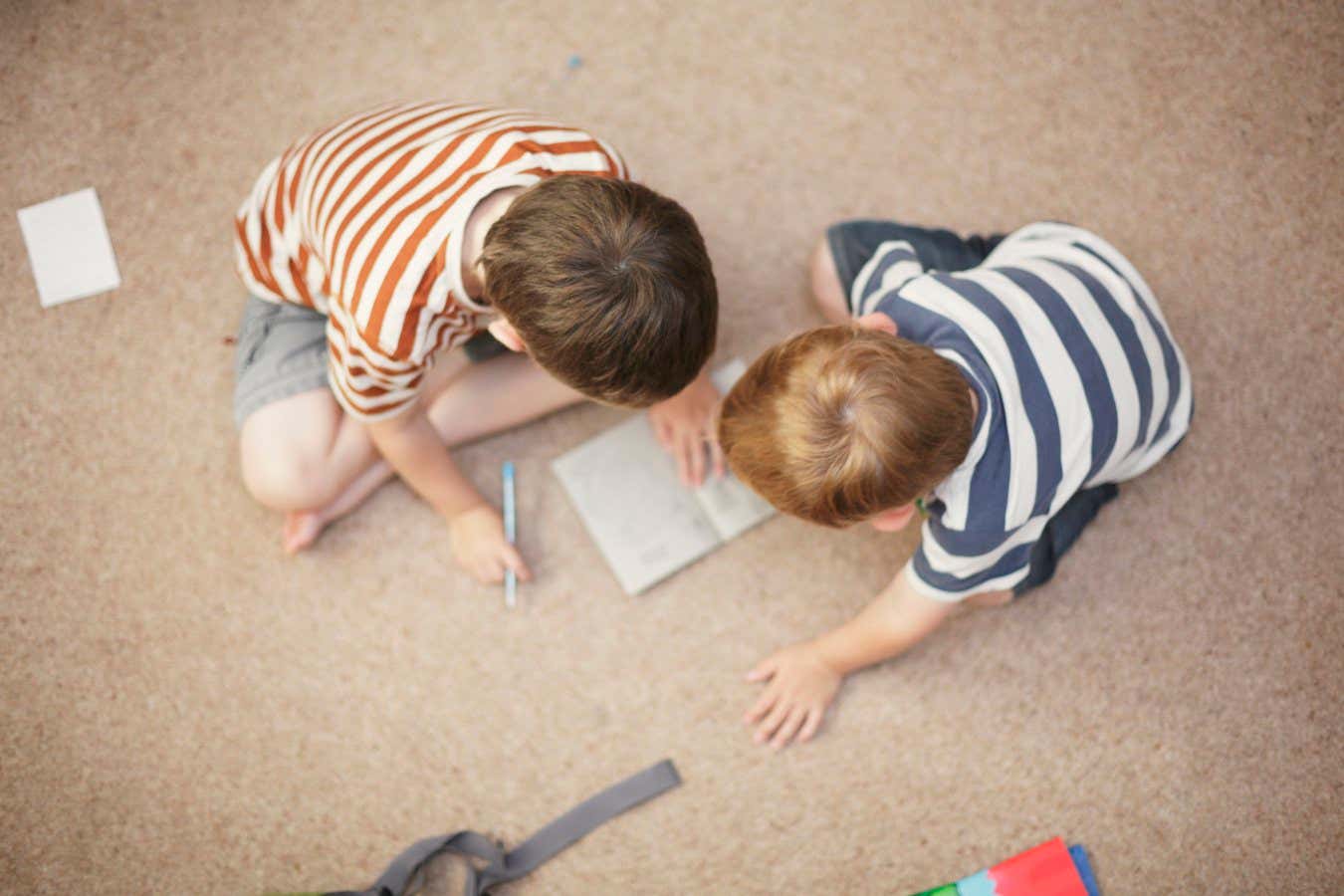Some preschool children in Canada scored higher on cognitive skills tests during the pandemic than those tested before covid-19 emerged, possibly because their parents were at home more
By Michael Le Page
17 November 2023
Spending more time at home may have benefited some children
Christopher Hope-Fitch/Getty Images
A study of 1400 preschool children in Canada has found that those tested during the covid-19 pandemic did better on several cognitive measures than those assessed before the outbreak began. The team behind these results thinks this is because these children have parents with a relatively high income who may have spent more time with them during the height of the pandemic.
Most of the other studies looking at how the pandemic has affected children concluded that it has been overwhelmingly negative. However, these studies almost all looked at social and emotional skills rather than cognitive abilities and at school-age children rather than preschool children, says Mark Wade at the University of Toronto, who was involved in the latest Canadian research.
“It isn’t necessarily the case that the pandemic has been totally and irreversibly bad for kids,” he says. “We need to understand under what conditions, or for whom or when, do we see these positive and negative effects?”
Advertisement
To learn more, Wade and his colleagues analysed data from the Ontario Birth Study, which began in 2018, to compare how different children performed on tests when assessed at the same age.
As part of this study, 700 children did a number of performance tests on iPads when they were around 4-and-a-half years old and their parents filled in a questionnaire.
Of the 700 children, those tested between March 2020 and June 2022 scored slightly higher on measures of vocabulary, visual memory and overall cognitive performance than those tested before March 2020. For instance, the pandemic children scored around 4 units higher in overall cognitive performance on a scale where 100 is the average score. There were no differences in socioemotional measures between the two groups.
